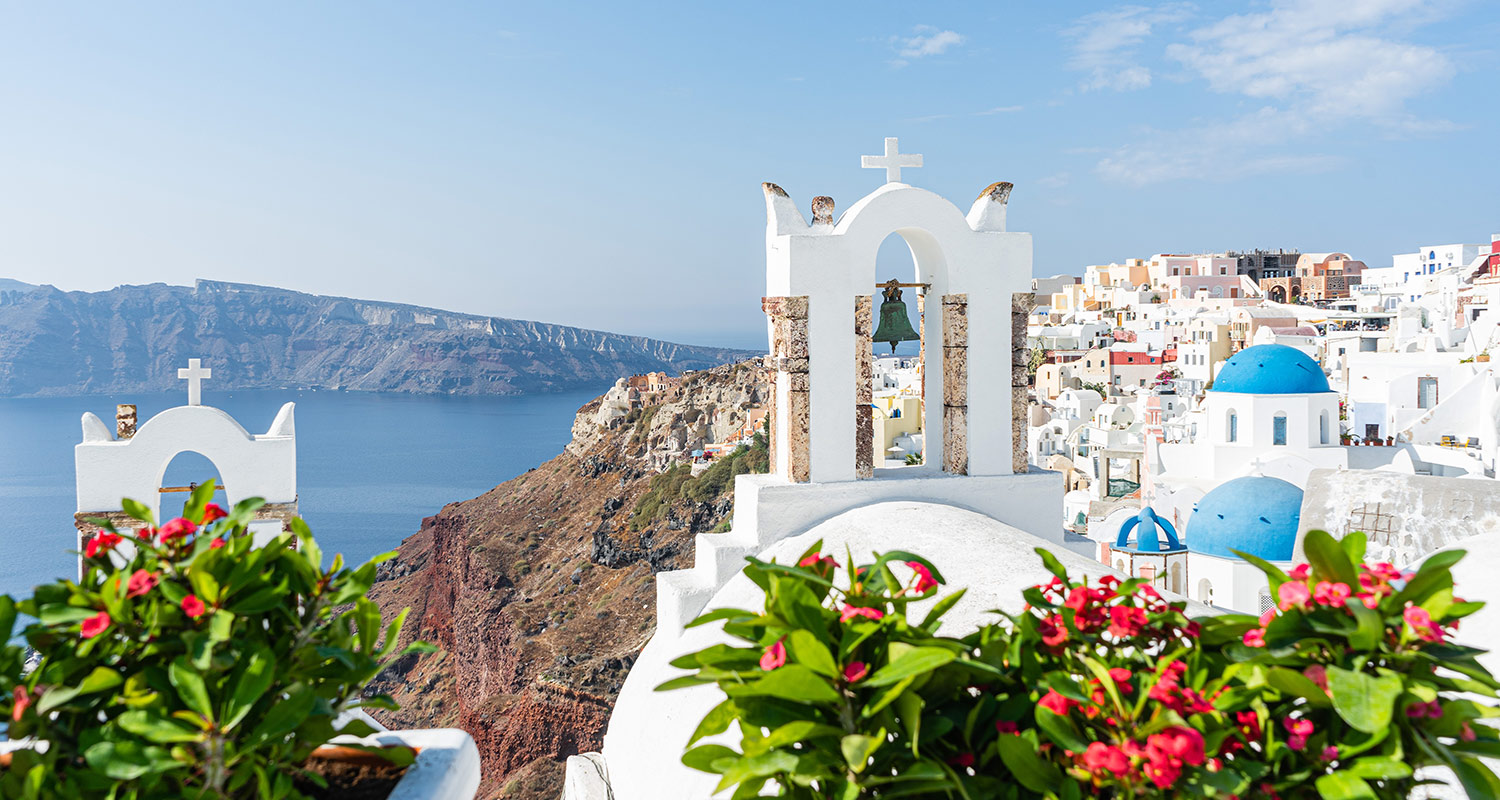
5 phrases you should master on holiday in Greece
A few short sentences are enough to be able to communicate on holiday in Greece. You should know these words.
8 October 2021
Whoever goes on a vacation abroad, should at least know a few words and phrases in the respective national language. Because nothing goes down better than giving the locals the feeling that you are engaged with their language and culture. Simple phrases like "good morning" or "thank you" are often enough to put a smile on the other person's face.
These five essential phrases should be mastered for a holiday to Greece.
First things first: the alphabet and pronunciation
The Greek alphabet has 24 letters, just like in German, but it sounds completely different. Therefore, you should first look at the Greek alphabet and practice the pronunciation, because the letter "B", for example, is not pronounced like "be", but "we". You can find the alphabet with the correct pronunciation here..
1. welcome and farewell in Greece
A greeting is polite and is definitely one of the phrases you should know in Greece. Moreover, it makes you, the tourist, doubly likeable if you make the effort to know some of the language and therefore the culture of Greece. A casual hello means [ja sas] γειά σας. If you want to wish a good morning, say, [kalimera] καλημέρα. On more serious occasions, you can use [cherete] χαίρετε, to wish a good day. So that you don't end up with a question mark on your face when saying goodbye to your counterpart, you can remember [adio] αντίο, for goodbye, and [kalinichta] καληνύχτα, for a good night.
2. Yes, no or maybe?
Assuring words like yes, denying words like no and words like maybe are extremely important when staying in Greece. Imagine you are in a restaurant and the waiter asks you if you want to drink ouzo. If things go badly and the waiter misinterprets your signs, you will miss out on the pleasure of the country's typical drink because of the language barrier. To prevent this from happening to you, use [ochi] όχι for no and [isos] ίσως for maybe. Don't be confused by the translation, which means exactly the opposite in German, and say [ne] ναι, for yes, if you want to drink an ouzo.
3. please & thank you
A simple thank you is easy in any language! In Greece, you can express your gratitude with [efharisto] ευχαριστώ. Do you want something or do you want to say thank you? Thank you answer, add [parakalo] παρακαλώ, in German. Please Added.
4. vocabulary for the restaurant visit in Greece
At some point hunger comes and at the latest then you have to open your mouth for the choice of food and ask for the menu. You can do that with [ton katalogo parakalo] τον κατάλογο παρακαλω! (Eng: The card please). There is also toasting in Greece, of course. With [stin ija sas] στην υγειά σας! you do it like a Greek.
5. "My name is ... and yours?"
Of course, a little small talk also includes introducing yourself by name. And this is not difficult in Greek. You can introduce yourself with your name and ask about the other person's with [me lene example name. Esena] Με λένε Μόνικα. Εσένα, which means, "I am ..... And you?"
What is your name, ma says in Greek with [pos se lene] πως σε λένε. If you want to know how the other person is doing, ask [ti kanis] τι κάνεις in the you form. How are you is called [ti kanete] τι κάνετε.

